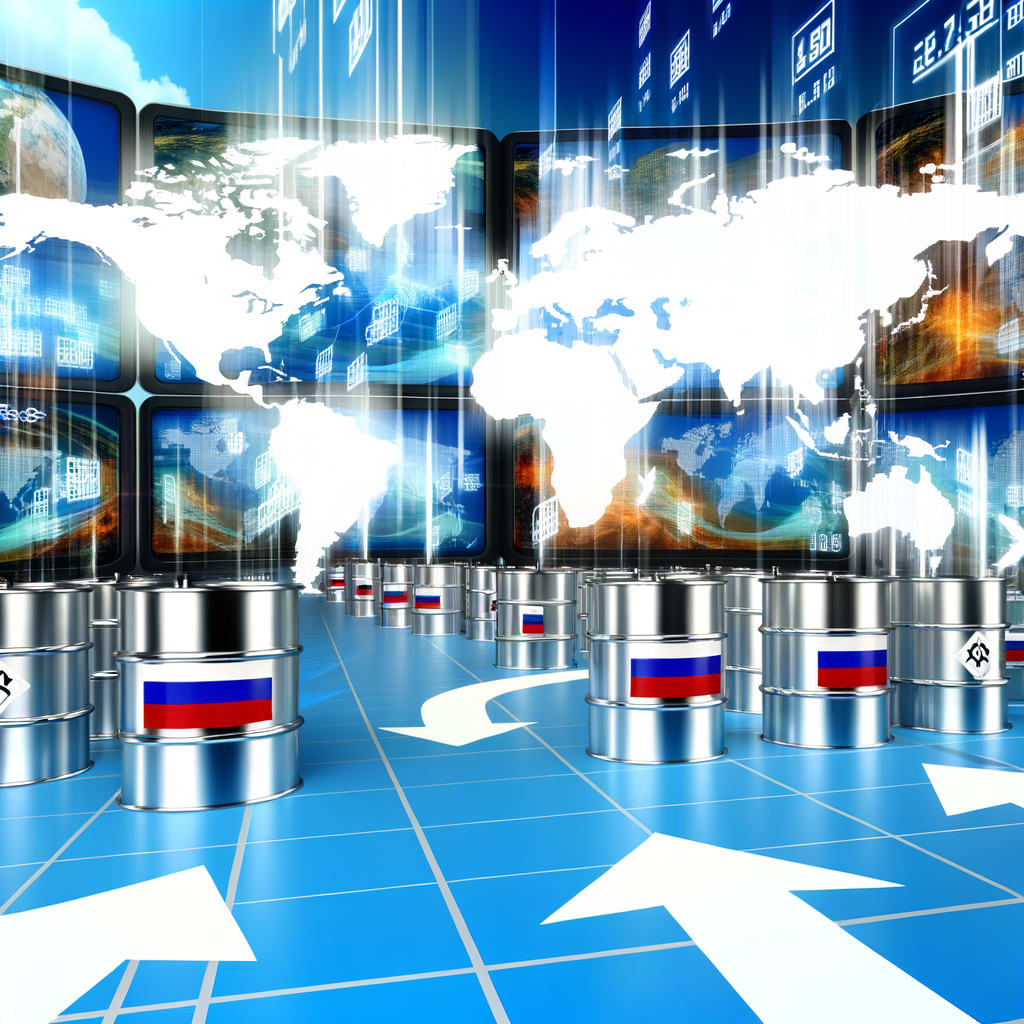US Sanctions on Russian Oil Producers Impact Global Markets
US President Donald Trump has imposed sanctions on two of Russia's largest oil producers, Rosneft and Lukoil, causing global oil prices to surge and prompting India to consider cutting Russian oil imports. The sanctions, a part of the Trump administration's efforts to pressure Russia into ending the war in Ukraine, may also affect other global economies and have sparked varied reactions.
Background and Context
The sanctions, which froze US assets belonging to the Russian oil giants and barred American firms from doing business with them, resulted in Brent crude increasing by 3.5% to $64.53 a barrel. In addition, the White House warned of secondary penalties for companies continuing to do business with the sanctioned firms.
Russia has responded by redirecting LNG supplies to China and India, potentially increasing the number of LNG carriers due to longer shipping distances. However, the markets fear a sharp decline in Russian oil exports following the sanctions, raising prospects of major disruptions to Russian crude production and exports.
Key Developments
India's refiners are reportedly preparing to sharply curtail imports of Russian oil to comply with the new US sanctions. Last year, Reliance Industries Ltd had signed a deal with Rosneft to import nearly 500,000 barrels per day. However, the company now plans to reduce or cease imports of Russian oil, including halting purchases under its deal with Rosneft.
China, despite condemning the US sanctions, has suspended sea-borne Russian oil purchases. This comes amidst Beijing's preparations for technological self-sufficiency and new purges in the army.
Germany is seeking an exemption for its subsidiary of Rosneft from the sanctions, as the company owns stakes in three refineries in Germany that account for about 12% of the nation's total oil-processing capacity.
Implications and Reactions
Russian President Vladimir Putin has criticized the sanctions as an act of hostility, warning that a slump in Russian oil volumes on the global market could lead to a spike in oil prices, affecting even the US. On a similar note, a former White House energy advisor, Amos Hochstein, has cautioned that the new sanctions could backfire, with a rise in global oil prices potentially offsetting Moscow's export losses.
Meanwhile, Lithuanian President has called the sanctions a game changer, claiming that they will directly affect the oil and gas industry, which generates revenue for Russia's war machine, and could lead to the collapse of the Russian economy.
Current Status
As the global oil market adjusts to the new sanctions, the implications for Russia's economy and global oil prices remain uncertain. Ukrainian leader Zelenskyy has praised Trump's decision to impose oil sanctions as a big step, urging the US to broaden the sanctions to all Russian oil companies.
Despite the US imposing sanctions and global economies adjusting their oil imports, Russia maintains that the sanctions will not significantly impact its economy. However, the economic minister has conceded that such sanctions, including secondary ones, could slow down the global economy.
The situation remains fluid, with the world watching closely as the repercussions of the sanctions unfold and their impact on the Russia-Ukraine conflict becomes clearer.

